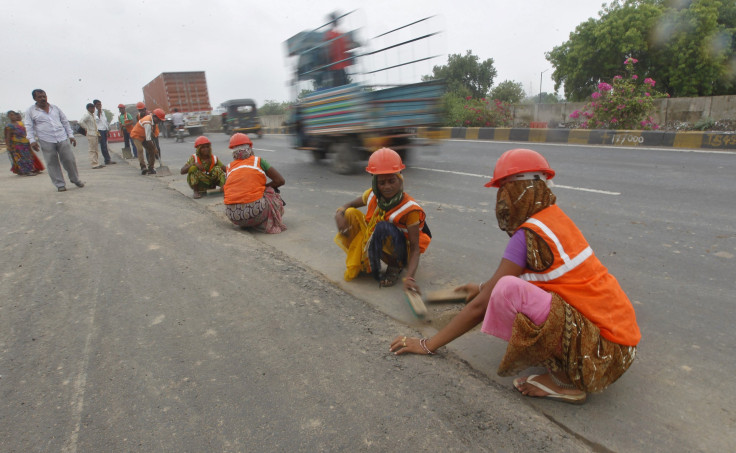India Clears $28 Billion Worth Of Energy, Power And Infrastructure Projects Amid Stocks, Rupee Crash

The Indian government, on Monday, cleared 36 stalled projects worth 1.83 trillion rupees ($27.8 billion) in the energy, power and infrastructure sectors, stepping up its efforts to turn around the slowest growth the country has seen in a decade, and to restore tumbling investor confidence, even as local stocks and the rupee went into a free fall.
“Message that we are sending, we are very keen to get investment cycle restarted. ...The cycle has started and we are pushing it further,” Finance Minister P. Chidambaram was quoted as saying by Press Trust of India, or PTI.
The announcement failed to bring cheer to financial markets as investors remained skeptical and the benchmark BSE Sensex fell more than 590 points to end Tuesday’s trading session down 3.18 percent. The rupee fell 2.9 percent to record its biggest percentage fall in 18 years to hit a fresh record low of 66.30 against the dollar in intraday trading before recovering marginally to close at 66.25.
“Every emerging market is challenged today. So, India is also challenged, and the impact is felt both on the equity market as well as the currency market,” Chidambaram told a news conference, according to Reuters. “I think we'll simply have to be patient, be firm, do whatever is required to be done, and the rupee will find its appropriate level.”
The clearance for the projects comes a day after the lower house of the Indian parliament approved a food subsidy program, which is estimated to cost about $19.5 billion and could raise the country's fiscal deficit to 5 percent of GDP, or $93 billion, in the financial year ending in 2014, according to the Federation of Indian Chambers of Commerce and Industry.
"The trinity of the fiscal deficit, slowing growth and an unstable currency is hitting us badly. In addition to these, the government has passed the food security bill which may put fear in the mind of rating agencies," G. Chokkalingam, managing director and chief investment officer of Centrum Wealth Management in Mumbai, told Reuters.
Analysts who spoke to Reuters said the food security bill, amid worsening economic indicators, could scare off investors, while the newly announced infrastructure projects could take several months, or even years to stir the desired economic activity.
However, Chidambaram defended the food security bill, saying it would not impact the fiscal deficit target, Reuters reported.
According to Chidambaram, fuel supply agreements for the power projects, would be signed by Sept. 6, a deadline extended from Aug. 31, PTI reported. He added that banks had already disbursed as much as 300 billion rupees for the power sector projects and are expected to provide more funds for the projects.
© Copyright IBTimes 2024. All rights reserved.





















